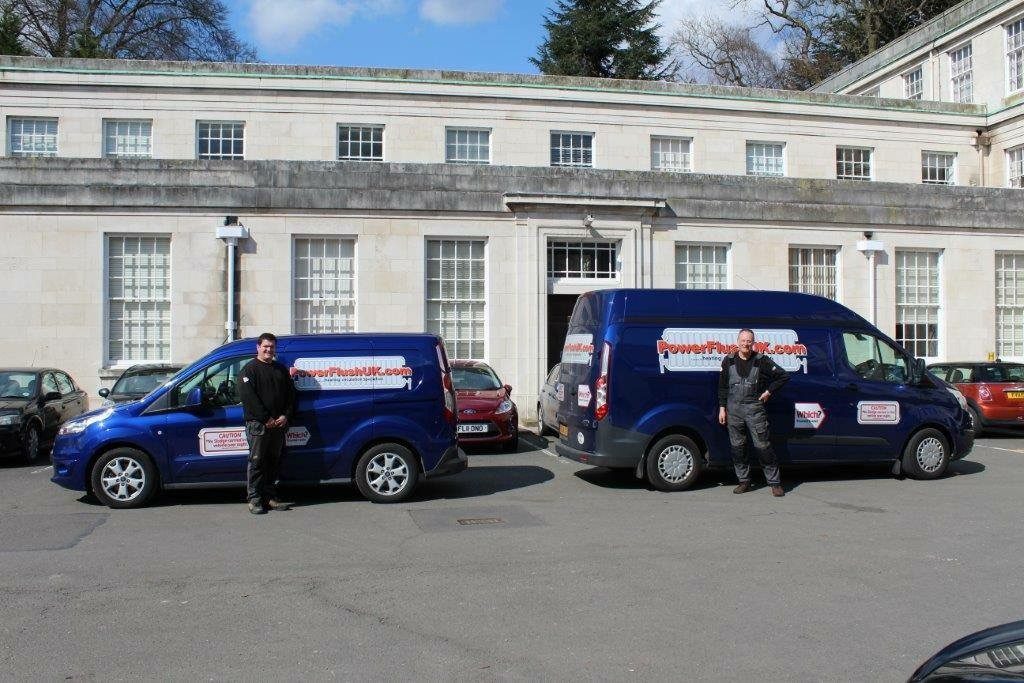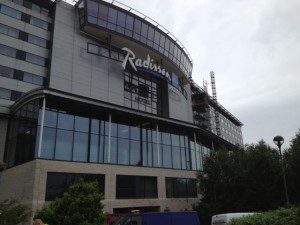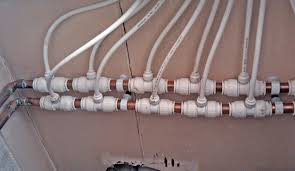Power Flushing And De-scaling For Homes And Commercial Properties
Updated: 22 March 2023. Bob Jones (pictured here) knows how to solve your heating and hot water problems. In 1992 he did his first “power flush” to solve heat exchanger (for hot water) problems, to move sludge and remove debris and rust. ‘Back then hardly anyone in the plumbing and heating world had heard of it.
In 2002 he set up Powerflush UK to provide the first nationwide central heating system power flushing service for domestic and commercial heating systems.
Since then he and later his son Ben and now two Toms, have carried out over 4000 successful powerflushes in systems of all types and sizes.
PowerFlushUK will give your system a thorough inspection and after an efficient and effective procedure will provide you with:
- Visual and written evidence of the state of your system
- A certificate proving and guaranteeing the ‘inner cleanliness’ of your system.
- We will do the work when it suits you and we promise to leave your house how we found it. (But better!)
- A guarantee against blockages in your system for five years
- All of this for a competitive package price from £380 for a typical 3 bedroom house. (This is often up to half the cost of power flushing by a well known national energy supplier!)

Our Latest Power Flush Articles
- Power Flushing Reviews
- How Much Does Flushing My System Cost?
- What Is A Central Heating Flush?
- How To Power Flush
Are you maintaining commercial premises?
PowerFlushUK has built up a wealth of experience of power flushing and remedial work in a variety of commercial premises , including offices, factories, warehouses and hotels. We can deal effectively with any large scale heating system. For examples of projects undertaken and to find out more about our commercial service, click here

Click here to get your free quote
Power flushing FAQ’s
What is powerflushing?
Powerflushing is purely and simply a way of removing the rust that slowly builds up in your heating system and boiler over time. Water, chemicals, powerflush equipment and an experienced plumber are used to remove the rust and sludge from your central heating. The flow of the machine is reversed from time to time using special three-way valves attached to the flushing pump. This is an extra step to help clean the pipes and radiators to remove cold spots.
Do You Provide A Guarantee?
Yes, we provide a full guarantee. At the end of each job we will post a certificate to you that guarantees your power flush.
Does The Engineer Need To Be Gas Safe Registered?
No. A power flush can be undertaken by an experienced and knowledgeable engineer as we do not touch the gas supply or exhaust vent system.
The reason that happens is generally one of two things:
1. Your pump has failed or is stuck. The water can’t circulate and therefore the water that is in the heat exchanger will boil very quickly. In some older boilers in particular it takes a while for the thermostat in the boiler to turn the gas off. In modern condensing boilers the thermostats are more sensitive and will extinguish the boiler flame quickly.
2. There is a blockage in the main flow or return pipework, or with the water ways in the boiler heat exchanger which is either completely or partially blocking the flow of water through the boiler – so the water in the boiler starts to boil and make steam again. Hence the popping, hisses and bangs.
Where does the rust in my heating system come from?
If you have seen someone else’s system power flushed you will know what an amazing amount of rust and radiator sludge can come out, in all shapes and sizes. But, contrary to popular belief the vast majority of the sludge that you see does not come from your boiler. Most non-condensing boilers (those installed before 2006) have cast-iron heat exchangers and they, by and large, do not rust. The vast majority or rust and/or sludge in your heating comes from the radiators themselves as they are made from mild-steel.
Why does rust form in the first place?
Water is made of hydrogen and oxygen (one part H and two parts O = H2O). Oxygen is highly reactive and is always looking for somewhere to latch on to instead of the Hydrogen molecule. So, any time it comes across a piece of iron that is ‘bare’, i.e. unprotected, it is going to latch on to that and makes rust (most often Fe2O3). And that’s where rust comes from. Power flushing radiators will remove that.
How do I protect my heating system after it is cleaned?
Once you have had a specialist in to do the work for you, the best way of protecting your system is to have the heating system regularly topped upped with corrosion inhibitor. These stop the rust forming by adding a protective molecule to any exposed bare iron. That molecule (most often a form of another metal called molybdenum) parks in the place that the oxygen molecule would want to be. And the result is no rust. The only caveat to this is if your heating system has a design flaw in it and is pulling in fresh water all the time.
Why powerflush?
Yes, there are other ways of cleaning your central heating system, but they are nowhere near as effective as using a the right machine when it is used by a competent and experienced heating engineer. You can add any chemical cleaner in to the system, leave for up to four weeks (Warning:careful here if you have micro-bore pipework) and then open up the system drain-cocks and let the water run out.
When you do that the only force moving the water out of the system is gravity and that will not pick up any larger bits of rust. Those will be left in nooks and crannies.
This article from the original designer-makers of power flushing equipment explains in more detail why using an expert with the right kit is usually a good idea.
Can A Power Flush Fix Cold Radiators?
Yes, a powerflush can fix cold radiators. Particularly if they are cold at the bottom. Sludge collects in a hump in the bottom of radiators so if your radiator is cold in the middle at the bottom it can be a sign that sludge is building up. Other places that sludge commonly builds up are in the airing cupboard and at the manifolds in microbore systems.
DIY Machine Hire
Because we are in the business of providing a professional service, we do not get many people calling to ask advice about how to do a do it themselves. It can be done though, and it can be done well IF, you are (a) a very competent DIY’er who knows how heating systems work and what can affect them, (b) you have done your homework about what metals are used in your rads and boiler, (c) you know how to quickly put right the occasional leaking compression joint without making it worse and without making a mess.
The question to ask yourself is this “Are you completely confident that you know what you are doing, that you are not going to make things worse and that you know what to do if things go wrong?” If not, you are wasting not just your time but your money hiring the kit.
Can micro-bore pipework be powerflushed?
The short answer is “Yes, it can”, but with a great deal of care. 10mm microbore systems need to be approached in a very different way to standard sized pipework. 8mm microbore systems need a lot of careful thought before flushing out.Microbore pipework was first commonly introduced in the 1970’s in an attempt to reduce the amount of copper needed to install a heating system.

The first thing you need to find out is if your system actually has microbore pipework. If you don’t know, a generally reliable way of finding out is to hold up a standard biro and a permanent marker pen next to the pipe going in to your radiators. If the pipe size is closer to the thickness of the marker pen, you have 15mm. If it looks more like the thickness of a biro or pencil you have micro-bore pipework and need to be much more rigorous in your choice if powerflushing company.
The biggest difficulty with cleaning out micro-bore pipework is purely because the hole that the water and rust that I carries are so very much smaller than 15 mm pipework. If it’s not done correctly there is a risk of blocking the pipe going to or from a radiator completely. And then your looking at replacing sections of pipework. And as most of those are hidden under floors or within walls that is not an attractive prospect.
For more answers for YOUR particular problem please call.
For residential jobs please call Ben Jones on 07779 556827 , he is always happy to talk about powerflushing.
Here is a Review:
This company solves heating and hot water problems in your home or workplace.
Written by: Ian Pritchard
Date Published: 10/02/2014
So happy that I made the right choice to sort out my boiler/heating problems! Before they arrived it was so COLD. But now it’s toasty warm! I wish all firms were as good as your team Bob, Thanks for making it so easy.
4.8 / 5 stars

